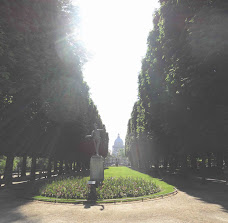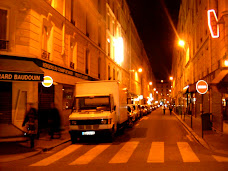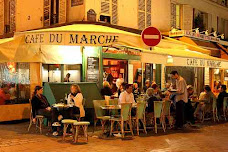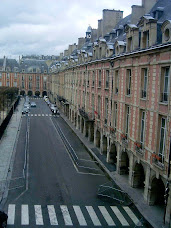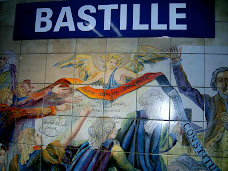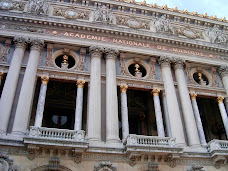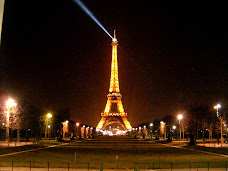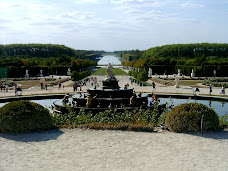Ghost Town
While July & August is the high season for tourism in Paris, the city can give off an eerie vibe at times during these months.
Those Parisians who are lucky or well-off enough leave town for several weeks; several shops close, including bakeries and a few restaurants; those who remain in the city go to work normally, but one phone call to a bank or services of that type reveals to those who went nowhere that while ppl may be at work, not much is getting done. I guess they resent the fact most of their friends are away on holiday.
Many buildings undergo renovation, so any hopes of a quiet month are quickly dashed by the noise of hammers, concrete breakers and all manner of electric tools, starting as early as 8 AM.
Until about 11AM there are very few ppl out- the tourists start appearing at lunch time, having spent the morning in a museum or visiting a monument.
The cinema is usually three-quarters empty, and only places favoured by tourists continue to have seemingly eternal queues.
The obvious aside, what strikes me every year around this time, if I don't travel anywhere, is how even residential buildings seem to take on a different appearance.
I walk around this district daily, and look at the buildings at different times of day/year and in different weather. It isn't always I notice these things but last week it struck me how one building in specific seemed to have sprouted out of nowhere, as if it'd been made invisible by magic during the year and, when there aren't locals around, it shows itself- to no one. Because the tourists can't compare how it looks now to how it looks the rest of the year, since they're, well, not here. Yknow those scenes in cartoons/films where the protagonist looks and the object disappears and reappears as soon as he looks away? Like that.
I took a few photos; it caught my attention for one main reason. Somehow, when I looked at it, the first thing that came to mind was the myth of the lost continent of Atlantis, and when I stood and observed the building, I started to see marine-like features in it that I hadn't previously appreciated. From now on I think of this as the Atlantis building.
 |
| Doesn't this awning remind you of an upside-down seashell? |
 |
| Square, symmetrical, magnificent |
 |
| I like the aqua paint very much |
 |
| Trellised gates/windows are so pretty, it's like lace or a coral reef- I wish contemporary buildings still integrated them. Superb crafsmanship. |
 |
| Again the acqua on the tile with the building number... |
 |
| ...which I find mega charming, like the arum lily sculpted in the stone |
 |
| These big square windows remind me of fishtanks. I have the impression I'll see an octopus swimming inside at any moment |
Maybe it's simple suggestion, maybe it's the colours the ironwork is painted, giving it a sort of "slimy" or covered by water and sea air, sea smell, sea breeeze feel, which corrodes and oxidizes, rusts. I like how bronze turns a blueish green when it oxidizes, and this building has that feature which is mainly present in old monuments and bronze sculptures sprinkled evenly around Euro cities. But here, this look is achieved solely with paint. 
The plants on the balconies contribute to the feeling that Spongebob Squarepants lives there. It makes it look like a building underwater, in a world where humans are amphibian.





































